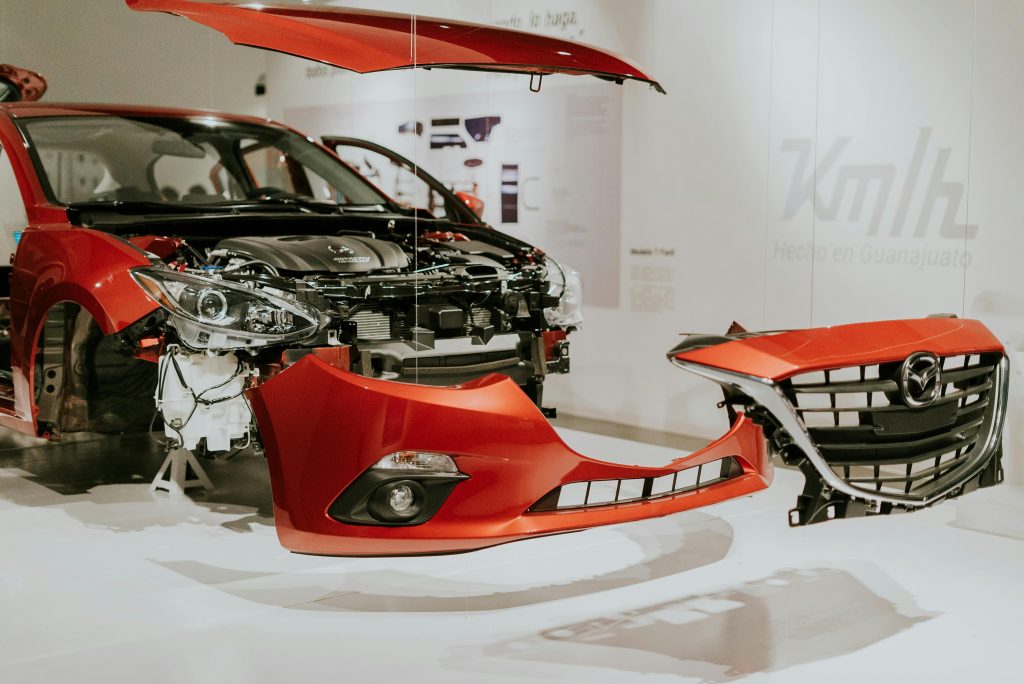
Lessons for Nigeria from Morocco’s Thriving Automobile Industry
By: Asomba Michael Chukuwbuikem | asomba505@gmail.com
There is a lot Nigeria can learn from Morocco’s thriving automobile industry, which has emerged as a dynamic player in the global automobile sector, experiencing significant growth and transformation in recent years. With a strategic location bridging Europe and Africa, a skilled workforce, and a supportive government, the country’s commitment to creating a conducive business environment, coupled with investments in infrastructure and skilled labor, has propelled it into the spotlight of the global automotive industry. As Morocco continues to drive forward, its automotive sector is poised to play an increasingly influential role on both the continental and global stages. The automotive industry currently accounts for 10,000 million euros in exports, making it the biggest export sector through 2021.
Considering the increase in phosphate prices today, the difference is 5 billion euros. Morocco’s automobile industry is significant; it generates more than 200,000 million euros annually and employs 200,000 people. The North African country is well-placed geographically as well as economically (thanks to the African Continental Free Trade Agreement) to export cars to European markets, especially France, Spain, Germany, and Italy. While the market continues to grow and gain importance among auto manufacturers, it remains to be seen if it can disrupt Asian auto manufacturing hubs in the future.
Given that the industrial sector topped the list of its exports, Morocco symbolizes a turning point for North African and Middle Eastern nations in terms of industrial development. This example must encourage economists in the countries of the region to examine Morocco’s strategy, draw lessons from it, and design policies that will allow developing nations to compete in the industrial sector, supporting long-term economic growth and job creation.
Nigeria’s automobile industry is underperforming, with many Nigerians relying on imports and job opportunities shrinking. The decline is due to a lack of investment in research and development since the 1980s, government policy inconsistencies, high exchange rates, and foreign exchange scarcity. Additional factors include low demand from government officials and the influx of used cars. According to Victor Eburajolo, former Deputy Managing Director of Kewalram Chanrai Group, vehicle prices have exceeded the purchasing power of millions, reducing demand significantly. The economic recession and the naira’s depreciation have further impacted sales and production, with car demand dropping from 600,000 to 350,000 in 2022, and then halving again the following year. To revitalize the industry, Nigeria should study Morocco’s successful strategies and design policies to foster industrial growth and job creation.
North Africa, particularly Morocco, leads the African automobile industry and is poised to become a significant global competitor. Morocco’s success stems from developing competencies beyond cheap labor and supportive policies, attracting premium and luxury models. Nigeria can learn from Morocco’s thriving automobile industry. Joining the African Continental Free Trade Agreement would enable Nigeria to secure free and bilateral trade agreements, facilitating duty-free importation of raw materials and cost-effective exportation of vehicles. Proximity to European, African, and Mediterranean markets gives Nigeria a logistical advantage, reducing export costs and benefiting from low labor costs. Nigeria should also emulate Morocco’s trade agreement with the EU, potentially boosting automotive exports significantly. Consistent government policies and investments are crucial, as seen in Morocco’s efforts to develop into a global auto manufacturing hub. Encouraging the purchase of locally-made vehicles by civil servants can stimulate a second-hand market, creating long-term market dominance. The Nigerian government should also revive the 2014 national development automotive plan to support local manufacturing and assembly, boosting GDP and reducing reliance on imports.
Nigeria should attract renowned automotive companies like Renault, Peugeot, Volkswagen, and Hyundai to establish a presence in the country, leveraging its strategic location as a cost-effective gateway to global markets. Partnering with local suppliers can enhance the domestic industry, and aiming to become a hub for EV and EV component production will position Nigeria as a leader in Africa. Political stability, consistent policies, and infrastructure investments are essential to support manufacturing and export operations. Establishing Automotive Industry Training Institutes will address recruitment and competency development needs. With quality vehicles and a focus on research, development, and electric vehicles, Nigeria could achieve significant export growth and contribute substantially to the GDP. Creating a favorable business environment, attracting foreign direct investment, and developing specialized industrial zones for automotive parts manufacturing will reduce import dependency and enhance the competitiveness of Nigeria’s automotive sector.
Morocco’s automotive market is a compelling narrative of growth, innovation, and strategic positioning. Hence, Nigeria should be committed to creating a conducive business environment, coupled with investments in infrastructure and skilled labor, which will propel the country into the spotlight of the global automotive industry. As Nigeria continues to drive forward, its automotive sector is poised to play an increasingly influential role on both the continental and global stages.